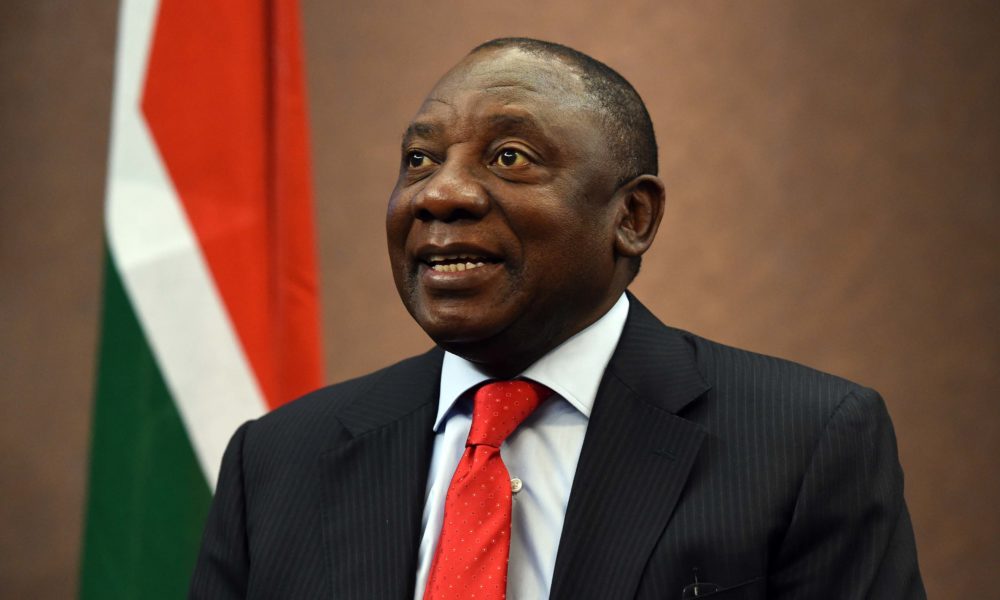Government
Cyril Ramaphosa Begins New Term Under Coalition Government

Cyril Ramaphosa was sworn in for another term as South Africa’s president on Wednesday, the beginning of a new era under a coalition government.
The ceremony held at the Nelson Mandela Amphitheater in the Union Buildings saw Ramaphosa take the oath of office before Chief Justice Raymond Zondo.
The event was attended by prominent dignitaries, including Nigerian President Bola Tinubu, Democratic Republic of Congo leader Felix Tshisekedi, and Zimbabwe’s Emmerson Mnangagwa, and was marked by a 21-gun salute and an air force flyover.
Ramaphosa’s reappointment comes three weeks after elections saw his party, the African National Congress (ANC), lose its parliamentary majority for the first time since the end of apartheid.
The ANC secured just over 40% of the vote on May 29, with millions of former supporters either backing a splinter party led by ex-leader Jacob Zuma or abstaining due to dissatisfaction over high levels of poverty, unemployment, and crime.
In his inauguration address, Ramaphosa emphasized the resilience of South African democracy and the need for unity.
“The resilience of our democracy has once more been tested, and the people have spoken loudly that they choose peace and democracy over conflict,” he said. “The voters of South Africa did not give any single political party the full mandate to govern our country alone. They have directed us to work together to address their plight and realize their aspirations.”
The ANC’s unprecedented electoral outcome necessitated a power-sharing agreement with long-time rivals. The main opposition Democratic Alliance (DA) and four other parties have agreed to join a government of national unity, supporting Ramaphosa’s leadership in exchange for cabinet and parliamentary positions.
This coalition is expected to prioritize economic growth, investment attraction, structural reforms, and sustainable management of state finances.
The rand strengthened to a level stronger than 18 per dollar for the first time in over ten months, and Johannesburg’s benchmark equity index reached a record high on Wednesday.
Market optimism is driven by the inclusion of business-friendly parties in the government, anticipated to bolster Ramaphosa’s reform agenda aimed at addressing power shortages, logistical challenges, and other economic impediments.
Despite criticism in his previous term for his consultative approach, which opponents labeled as indecisive, Ramaphosa reaffirmed his commitment to inclusive governance.
“Those who would like a president that is dictatorial, who is adventurous, who is reckless, will not find that in me,” he stated last month. “In me they will find a president who wants to consult. All these processes have often been seen as, ‘he is weak, he is not decisive.’ I am decisive, but I want to take people along with.”
The new coalition government faces significant challenges, including negotiating policy differences and accommodating politically powerful figures within the ANC and its partners.
The DA has already expressed concerns over the ANC’s uncosted national health insurance plan and its foreign policy stance.
Susan Booysen, director of research at the Mapungubwe Institute for Strategic Reflection, noted the complexities ahead. “South Africa is really moving into this with minimal on-the-ground preparation and justification,” she said. “The devil is going to be in the exact detail. Once cabinet is announced, some basic agreement will have to be reached on policy positions and on what the red-line issues will be.”
As Ramaphosa begins his new term, the nation watches closely, hopeful that this coalition government can navigate the intricate landscape of South African politics and bring about the much-needed reforms and stability.